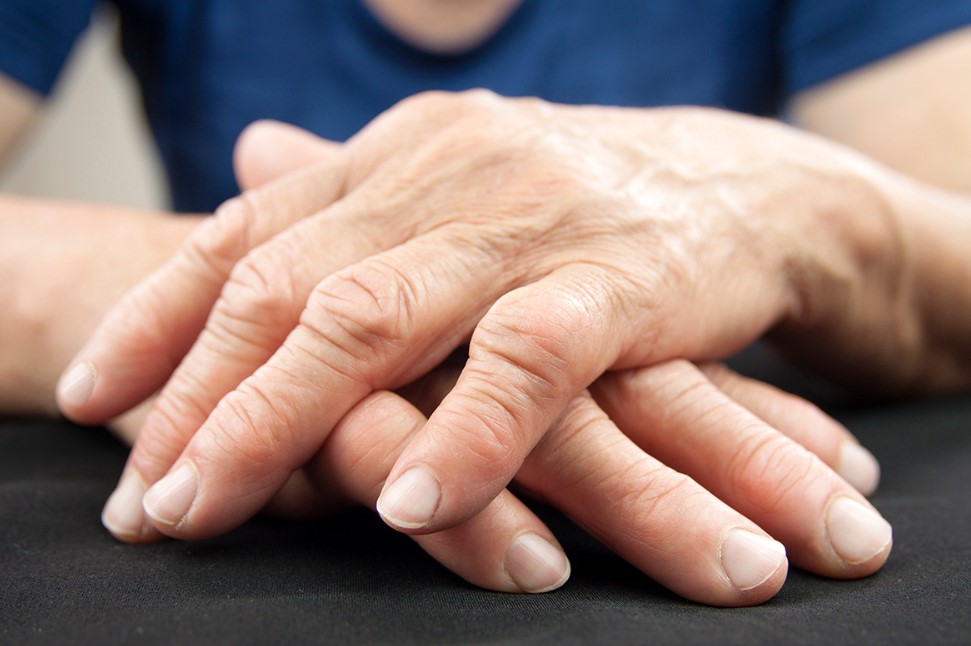Imagine waking up one morning, and as you stretch out your arms, you don’t feel the pleasant sensation of a new day but an excruciating pain that seems to cover your joints. It is one of the rheumatoid arthritis symptoms that can make even simple tasks daunting and hard for you.
RA is a chronic autoimmune disease that primarily affects the joints, causing inflammation, pain, and potentially irreversible damage.
However, the key to effectively managing this condition is understanding its symptoms, and causes, and implementing a comprehensive management plan.
Let’s discuss rheumatoid arthritis symptoms and underlying causes.
Rheumatoid Arthritis Symptoms: How to Recognize Them?
Recognizing the symptoms of rheumatoid arthritis is the first step in managing this debilitating condition.
Here are some common symptoms:
Joint Pain and Swelling
The hallmark of rheumatoid arthritis is joint pain and swelling. It usually affects joints on both sides of the body, such as both wrists or knees, making it a symmetrical condition.
The pain and swelling often occur in the morning or after periods of inactivity.
Morning Stiffness
People with RA often experience morning stiffness that lasts for at least 30 minutes, making it difficult to get out of bed or start their day.
This stiffness can also occur after sitting for extended periods.
Suggested Read: 6 Best Orthopedic Hospitals in Islamabad for Muscle, Joint, and Bone Problems
Fatigue
RA can lead to extreme fatigue, which is not necessarily related to the level of physical activity. This fatigue can be overwhelming and interfere with daily life.
Reduced Range of Motion
As the disease progresses, joint damage can limit the range of motion. This may affect one’s ability to perform simple tasks like gripping objects, bending, or even walking comfortably.
Rheumatoid Nodules
In some cases, small lumps, known as rheumatoid nodules, can develop under the skin, particularly near the affected joints. They are often painless but can be bothersome.
Fever
RA can sometimes lead to a low-grade fever, which is often associated with periods of increased disease activity.
Symptoms Beyond Joints
Rheumatoid arthritis is not limited to the joints; it can affect other systems in the body.
Some people may experience eye dryness, chest pain, and difficulty breathing due to lung inflammation.
Emotional and Mental Health Impact
Living with a chronic condition like RA can take a toll on mental health. Anxiety and depression are common in individuals with this condition.
Looking for an experienced orthopedic surgeon? Consult Dr. Afzal Hussain. He is the best orthopedic surgeon in Lahore with experience spanning over 36 years.
What are the Causes of Rheumatoid Arthritis?
Understanding the causes of rheumatoid arthritis is complex, as it involves an interplay between genetic, environmental, and immunological factors.
Here’s an overview of what is known about the causes:
Genetic Factors
Genetics plays a role in the development of rheumatoid arthritis. If you have a family history of the disease, your risk may be higher.
Certain genetic markers, such as the HLA-DRB1 gene, have been linked to RA.
Autoimmunity
RA is an autoimmune disease, which means the immune system mistakenly attacks healthy tissues.
In RA, the immune system targets the synovium, the lining of the membranes that surround the joints. This immune response triggers inflammation, leading to joint damage.
Environmental Triggers
Various environmental factors may contribute to the development or exacerbation of RA.
For instance, smoking has been strongly associated with an increased risk of developing rheumatoid arthritis. Infections and hormonal changes can also play a role.
Hormones
Hormonal changes, such as those that occur during pregnancy or menopause, can influence the onset and severity of RA.
Women are more commonly affected by the disease, suggesting a hormonal component.
Inflammatory Response
An overactive inflammatory response can be a trigger for RA. Chronic inflammation in the body can lead to the destruction of joint cartilage and bone.
Suggested Read: Arthritis During Pregnancy – How to Manage the Pain?
How to Manage Rheumatoid Arthritis Symptoms?
Effectively managing rheumatoid arthritis involves a multi-approach, combining medical treatment, lifestyle changes, and self-care.
Here’s a comprehensive management plan for RA:
Medical Treatment
- Medications: Rheumatoid arthritis is typically treated with disease-modifying antirheumatic drugs (DMARDs) like methotrexate, which can help slow the progression of the disease.
- Pain Relief: Nonsteroidal anti-inflammatory drugs (NSAIDs) can be used for pain and inflammation management.
Biologic Therapies: In some cases, biologic drugs that target specific components of the immune system are prescribed. - Physical Therapy can help improve joint function, increase range of motion, and reduce pain. Therapists provide exercises and techniques tailored to the individual’s needs.
Lifestyle Changes
- Diet: A balanced diet rich in anti-inflammatory foods like fish, nuts, and fruits can help reduce inflammation. Avoiding processed foods and excessive sugar is also recommended.
- Exercise: Regular low-impact exercise, such as swimming or gentle yoga, can help maintain joint mobility and muscle strength.
- Weight Management: Maintaining a healthy weight can reduce the stress on joints and improve overall well-being.
- Rest: Adequate rest and proper sleep are crucial to managing fatigue and promoting healing.
Joint Protection
- Use assistive devices and adaptive tools to reduce joint stress during daily activities.
- Pay attention to ergonomics, ensuring your workspace and home environment are joint-friendly.
Consult Top Orthopedic Surgeons via Healthwire!
You should consider visiting an orthopedic surgeon for rheumatoid arthritis when the condition has progressed to the point where it has caused severe joint damage, deformity, or functional impairment.
Book an appointment with the best orthopedic surgeons using Healthwire’s platform.
